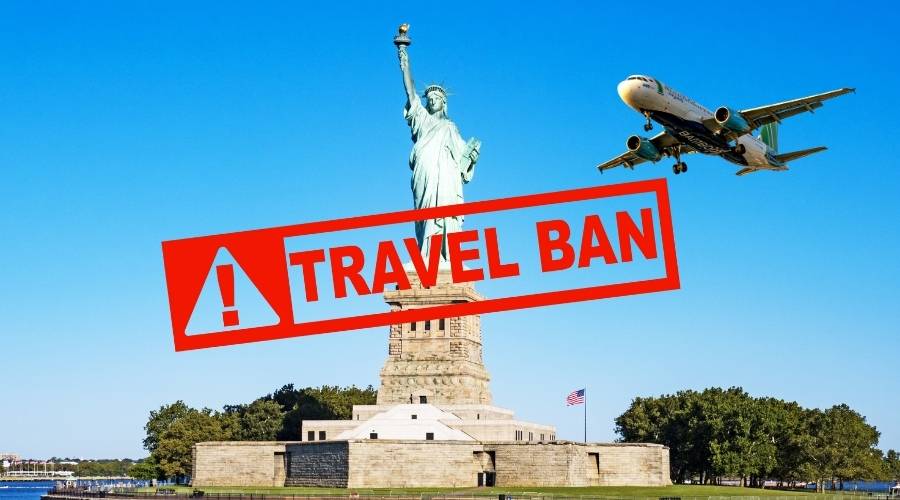On March 18, 2025, the U.S. government introduced a new travel ban that could impact travelers from 43 countries. The proposed restrictions classify these countries into three groups, each facing different levels of visa limitations. If fully implemented, these measures could affect international travel, education, employment, and family reunification.
Breakdown of the Travel Restrictions
The affected countries have been placed into three categories:
-
Total Visa Suspension – Citizens of 10 countries, including Afghanistan, Iran, Syria, Cuba, and North Korea, may be completely barred from obtaining any U.S. visa. Travel for tourism, business, or education would not be permitted.
-
Partial Visa Restrictions – Individuals from five nations—Eritrea, Haiti, Laos, Myanmar, and South Sudan—might experience limitations on specific visa types, such as student or tourist visas. However, certain exceptions could apply.
-
Probationary Period – A third group, consisting of 26 nations, including Belarus, Pakistan, and Turkmenistan, has been given 60 days to improve security protocols. If they fail to meet the required standards, they could face restrictions similar to the Partial Visa Suspension category.
List of Affected Countries
- Red Category (Total Visa Suspension): Afghanistan, Bhutan, Cuba, Iran, Libya, North Korea, Somalia, Sudan, Syria, Venezuela, Yemen.
- Orange Category (Partial Suspension): Belarus, Eritrea, Haiti, Laos, Myanmar, Pakistan, Russia, Sierra Leone, South Sudan, Turkmenistan.
- Yellow Category (Probationary Status): Angola, Antigua and Barbuda, Benin, Burkina Faso, Cambodia, Cameroon, Cape Verde, Chad, Republic of the Congo, Democratic Republic of Congo, Dominica, Equatorial Guinea, Gambia, Liberia, Malawi, Mali, Mauritania, Saint Kitts and Nevis, Saint Lucia, Sao Tome and Principe, Vanuatu, Zimbabwe.
Potential Consequences of the Travel Ban
If enforced, the ban could lead to:
- Severe Travel Disruptions: Individuals from affected nations may face significant barriers in traveling to the U.S., impacting students, professionals, families, and tourists.
- Visa Cancellations: Current visa holders from Red Category countries might have their visas revoked, potentially forcing them to leave the U.S.
- Education & Employment Challenges: International students and skilled workers from countries like Myanmar and South Sudan may struggle to secure U.S. visas, affecting their academic and career prospects.
What Should Affected Individuals Do?
- Visa Applications: If you are from an impacted country, prepare for potential delays or denials in obtaining a U.S. visa. Consider alternative travel plans.
- Current Visa Holders: If you hold a valid visa, monitor updates closely, as its status may change based on new policies.
- Green Card Holders: While lawful permanent residents are generally exempt, increased scrutiny may be expected, especially for individuals engaged in political activism.
- Stay Updated: Follow government announcements and seek guidance from immigration experts to understand your options.
Final Thoughts
The new U.S. travel ban could significantly impact individuals from 43 countries, reshaping global mobility. Whether you are a student, a professional, or a traveler, staying informed is essential. If your country is on the list, consulting an immigration professional can help you navigate the evolving situation.
For ongoing updates and expert visa advice, stay connected with reliable immigration resources.



